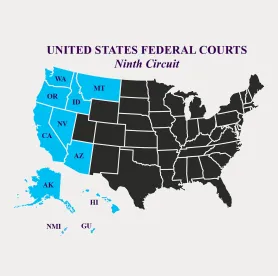In a recent opinion in Hill v. Walmart Inc., the Ninth Circuit affirmed summary judgment in favor of Walmart on Hill’s claim for waiting time penalties under Labor Code section 203, finding there was a good-faith dispute about whether Hill was properly classified as an independent contractor of Walmart.
The Facts
Hill provided modeling services to Walmart for a total of 15 non-consecutive days in 2016 and 2017. Walmart contracted with Hill’s agency and paid the agency a flat rate for Hill’s services. During the photoshoots, Walmart provided Hill with clothing and told her how to pose. Hill paid for her own travel and deducted her business expenses from her taxes. Hill did not receive a W-2 from Walmart or sign any employment-related documents.
In 2019, Hill sued Walmart alleging it had not paid her all wages upon “discharge,” or at the end of each shoot, and she therefore claimed Walmart owed her waiting time penalties under Labor Code section 203. The district court granted summary judgment in Walmart’s favor, finding there was a good-faith dispute as to whether Hill was an employee of Walmart.
The Appeal
On appeal, Hill argued that Walmart could not rely on the good-faith dispute defense because it requires “a good faith dispute that any wages are due” and Walmart did not dispute that some wages were due. Rather, Walmart only disputed when those wages were due. The Ninth Circuit rejected this argument and noted “wages” are specifically defined as “all amounts for labor performed by employees.” If Hill was ultimately found to be an independent contractor, she would not be entitled to immediate payment of “wages.”
The Ninth Circuit then turned to the merits of the good-faith dispute defense. To prevail on the good-faith dispute defense, the defense cannot be marred by bad faith conduct. The Court concluded there was nothing in the record to suggest “bad faith” on Walmart’s part.
The defense must also be objectively reasonable, even if it is not ultimately successful. In determining whether Walmart’s defense was reasonable, the court first had to determine which test of employment applied. Under the common law Borello test, courts look to a list of factors, of which the right to control the manner and means of the work is the most important. Under the ABC test set forth in Dynamex (which, although decided in 2018, has been held to apply retroactively), an entity must prove the individual’s work was outside the usual course of the hiring entity’s business (among other things).
The Court first noted the ABC test did not replace Borello in all cases. Rather, the Court found that the ABC test only applies to cases governed by the Wage Orders. Because Hill did not allege Walmart violated any Wage Order, the Court determined the Borello test was the proper test to analyze.
In assessing the Borello test, the Court found that while Walmart provided clothing to Hill and instructed her on poses, Hill arranged for her own travel, deducted her business expenses from her taxes, did not receive a W-2 from Walmart, modeled for other companies while she was modeling for Walmart, worked for 15 total days, was paid a daily flat rate instead of an hourly wage, and was not provided with any employment documents. The Court also noted that modeling is not a regular part of Walmart’s business.
The Court then went on to distinguish the three cases on which Hill relied. First was Zaremba v. Miller, decided by the appellate department of the Los Angeles County Superior Court on seemingly very similar circumstances. The court in Hill noted the putative employment relationship was much stronger in Zaremba because the putative employer, a photographer, directed every aspect of Zaremba’s photoshoot, paid Zaremba an hourly wage, and the work Zaremba performed was in the course of the photographer’s primary business (i.e., photography).
The court also dismissed Hill’s reliance on Smith v. Superior Court (L’Oreal), which involved a model hired for a one-day job. However, the only issue in L’Oreal was the definition of “discharge” under section 203. The employer conceded the model was an employee for all other purposes. Therefore L’Oreal’s holding was inapposite.
Finally, the court distinguished Tieberg v. Unemployment Insurance Appeals Board, a case involving television writers, because the plaintiffs signed an employment agreement and the hiring entity had significant control over the writers’ activities.
Ultimately, the court found the cases Hill cited were not similar or authoritative enough to render Walmart’s defense unreasonable. It thus affirmed summary judgment in Walmart’s favor.
Takeaway
There are a couple of pro-employer takeaways from Hill. As an initial matter, the Ninth Circuit affirmed the ABC test set forth in Dynamex, which is harder to satisfy than the common law Borello test, does not apply to every alleged employment relationship. Rather, its application is limited to cases alleging violations of the Wage Order.
Further, Hill held that, to prevail on summary judgment, an employer need not prove the merits of the good faith defense, as long as there is no dispute that such a defense is reasonable. Importantly, the Court did not decide whether Hill was in fact an employee of Walmart, but rather it found that Walmart had a good faith defense to Hill’s claims. The Court thus provided a path for employers to obtain summary judgment without having to turn to the merits of the plaintiff’s claim.


 />i
/>i

